Process Oriented Medical Education
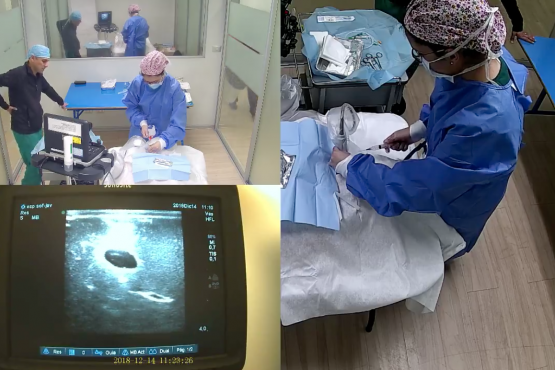
This interdisciplinary research line proposes a novel approach to incorporate the process perspective into the surgical procedural training through Process Mining. In this approach, training executions are recorded, to later generate end-to-end process models of such execution. A procedural analysis of the models is used to provide knowledge for the instructors about the performance of their courses, and feedback for the students in order to avoid the same mistakes in the future.
This research line is partially supported by CONICYT REDI 170136, VRI-UC INTERDISCIPLINA II170003, and CONICYT-PFCHA/Doctorado Nacional/2019-21190116
Wearable Monitoring for Older Adults
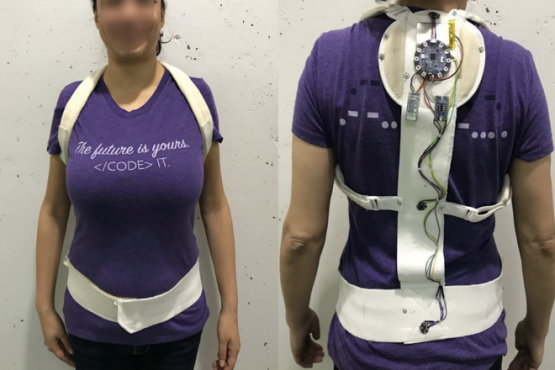
Technology may be used to monitor, manage and motivate older adults in their own care. This research line aims to use technologies to allow older adults to become active participants in their own health management.
We are interested in studying how to improve user experience and help users feel less isolated, through monitoring and self-report of health data, using this data to inform support networks and provide feedback, through appropriate visualizations, to the users.
This research is partially supported by CONICYT/FONDECYT 1181162, CONICYT-PCHA/Doctorado Nacional/2018-21180784 and 2014-63140077.
Tangible and playful interactions
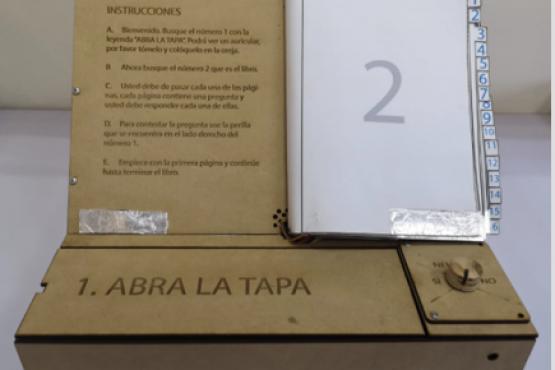
Tangible user interfaces are interfaces in which people interact with the digital world through a physical object. These types of interfaces may allow users to explore digital information in different ways. We have implemented tangible ambient displays for users to visualize their social network information, as well as tangible interfaces to self-report emotional information, and for older users to report their user experience.
Educational Trajectories

Students dynamic progression through the curriculum is challenging to analyze, and it requires moving from a classic key-value perspective, to a more process-oriented perspective. Students could be characterized by their educational trajectories, which describe their curricular progression. The goal of this research line is to propose a process-centric modeling of educational trajectories, together with adapted Process Mining multi-perspective techniques, and a novel methodology, in order to extract and describe the educational trajectories that students follow in higher education.
This research line is partially supported by CONICYT/FONDECYT 1200206, and CONICYT-PFCHA/Doctorado Nacional/2015-21150985
Motivation Paths in (Female) Computer Science Students
Understandability of Process Models by Domain Experts

The factors that contribute to the (specially female) students motivation in computer science classes are well studied in the literature. The goal of this research line is twofold: First, to design and analyze interventions that positively impact the motivation. However, instead of the huge course-changing interventions vastly proposed in the literature, this line focuses on low-cost interventions that barely change the course original planning, but with significant impact on the (female) students motivation. Second, to propose a set of novel process-centric approaches to analyze the motivation not as a moment, but as a path.
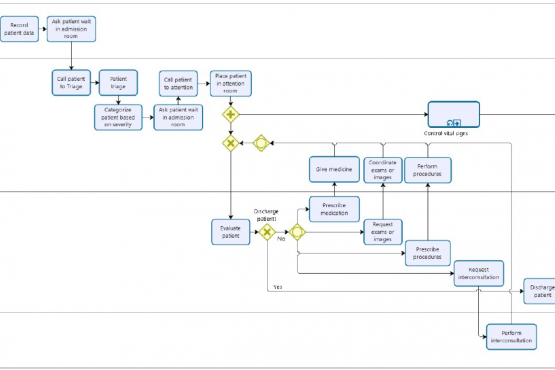
Despite the vast knowledge in the field of processes, some dimensions of how humans understand process models remain unexplored: in particular, understandability by domain experts, i.e. those who have knowledge of a specific field (e.g., medicine, education, banking, retail, …) but not process modeling. This research line builds theory and applications on process model understandability focused on domain experts. The main goal of the research is to gain in-depth understanding on the aspects that influence understandability of process model by domain experts and develop tools that apply the gained knowledge. We focus specially on the domains of healthcare and education.
Process Mining 4 Healthcare

Healthcare processes are seen as an area with complex models and which are subject to significant variation over time. Theses variations are caused by multiple factors, including the different conditions of patients and the multiple ways and sequences in which activities can be performed by the resources (physician, nurse, and other healthcare professionals). The ability to use Process Mining techniques for discovering process models and analyzing their performance provides valuable opportunities for taking advantage of information stored in Hospital Information Systems (HIS) event data. Using Process Mining techniques in healthcare processes not only ensures such procedures can be firmly understood, but can also generate benefits associated with process efficiency. For example, they can improve the quality of provided services as well as having a positive impact on the management of medical centers. That is the purpose of this research line.
This research line is partially supported by CONICYT REDI 170136, and CONICYT-PFCHA/Doctorado Nacional/2014-63140180
Conformance Checking in Process Mining
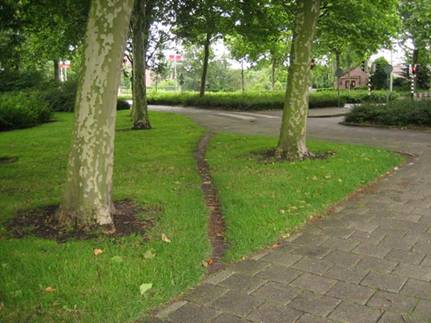
Conformance Checking is a family of Process Mining techniques that compares existing process models with actual observations of the process in order to assess their quality. These models are typically the result of a hand-made analysis influenced by the bias of the analysts and the process owners, modeling a possibly outdated representation of the process. Conformance checking techniques are a way to gain insight into the differences between the assumed process represented in the model and the real process in the data, pinpointing possible problems to be addressed. In this research line we focus on all type of conformance checking challenges, such as decomposed conformance for large processes, new algorithms and dimensions, or more compressive conformance outputs for non expert stakeholders.
This research line is partially supported by and CONICYT/FONDECYT 11170092, and CONICYT-PFCHA/Doctorado Nacional/2017-21170612.
Fundamentals on Process Mining
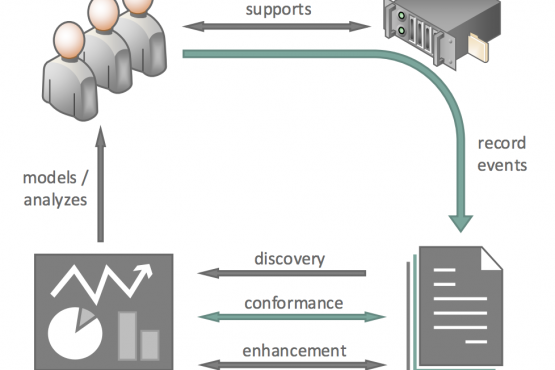
“Process Mining” is the new research field that bridges the gap between Data Science (i.e., gain insight from data) and Process Science (i.e., analyze and model processes). The goal of Process Mining is to discover, monitor and improve real end-to-end processes (i.e., not assumed processes) by extracting knowledge from event data readily available in today’s systems. Process Mining techniques have been applied to processes in a wide range of real-life contexts: health-care, public administration, education, airports, banking, logistic, to mention just a few examples. Research on Process Mining is one of the main goals of HAPLAB: from new algorithms, techniques, and frameworks, to new methods to apply it in novel scenarios.
This research line is partially supported by and CONICYT/FONDECYT 11170092, CONICYT-PFCHA/Doctorado Nacional/2017-21170612, 2012-21120850, and 2014-63140181.
Teaching Computer Science in Massive Courses

Teaching computer science is hard. Teaching computer science in Massive Courses is harder! Resource consuming changes to the course are not an option. Most approaches proposed in the literature simply do not escale. HAPLAB researches approaches specifically for massive courses. Some examples are FAIS (helping teachers to learn the name of their 150 students in a fun way), OSTIA (exams using the laptops of the students without jeopardizing they do it individually), DBA vs PBA (an study on the ethics perception between sharing code and sharing passwords to access the code), or low-resource-consuming interventions to the course with high motivational impact, learning analytics in massive courses, among others.
